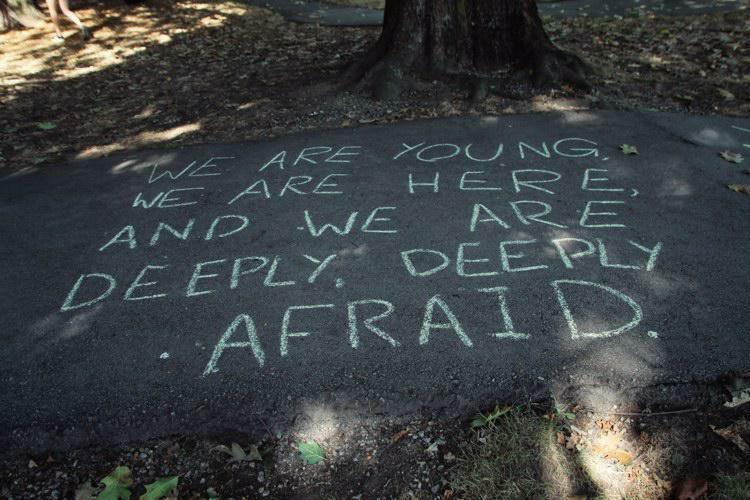
New West students want more COVID-19 mental health support
Student protest demands increased funding for teacher training, more counsellors
By Joe Ayres
Students are raising concerns over what they say is a lack of mental health support from the New Westminster School District during the COVID-19 pandemic.
Four out of the district’s 12 schools have had COVID-19 exposures since the school year started on Sept. 10. To accommodate for increased stress and anxiety, the district hired an extra 1½ counsellors to the school full-time. This means there are seven counsellors at New Westminster Secondary School, a school of just over 2,000 students.
The district’s COVID-19 health and safety plan mentions mental health just once when it notes that learning groups decrease the negative mental health impacts of the pandemic.

“So they instated a new counsellor and that’s great. They didn’t do a lot to inform the students of how to reach her. A lot of people didn’t even know she was, like, an option or that she existed,” said Elena Massing, a Grade 11 student and activist at the school.
Massing, along with her peers, organized a student die-in at the New Westminster school board offices on Sept. 22. While the event was planned before the COVID-19 exposures occurred, Massing says that when the exposures were announced it only motivated more students to join.
The students’ demands include increased funding for mental health support. This increased funding would go towards equal access to support for both remote and in-school students, training for teachers to give better emotional support, and more trained counsellors.
“A number of the concerns [the student strike] raised are actually around decisions that rest with bodies outside of the school district,” said district superintendent Karim Hachlaf. “But, as it pertains to the pieces we can affect, we’ll continue to collaborate, listen and engage with all members of our community.”

In 2019-2020 the district spent a total $646,579 on salaries for counsellors. However, in the 2020-2021 budget, released June 11, the district is spending $621,681 on salaries for counsellors. Hachlaf says that the district recognizes the additional stress created by the year and is expecting additional money from the federal government to add to the district’s counselling staff.
Dr. Ashley Miller, a clinical assistant professor in the child and adolescent psychiatry program at UBC, said: “The response of students will depend a lot on the response of the adults around them; the teachers, school staff and their parents. Exposure events are to be expected, and if these are handled with calm and kindness, students will likely manage them quite well.”
Massing said: “I feel like . . . students don’t feel safe with the safety measures that are being put in place. That kind of like contradicts any benefit that they might have received from face to face learning.”
Miller says students returning to school during the pandemic can cope with their anxiety by focusing on what they can control. This includes good hand hygiene, mask-wearing and helping a friend in need. At the same time, maintaining healthy routines outside of school like social distancing, healthy eating and exercise are all an important part of combating anxiety, she said. According to Miller, youth in the district should remember that with public health officials dealing with the pandemic there are many people working towards keeping students safe.

Comments are closed.